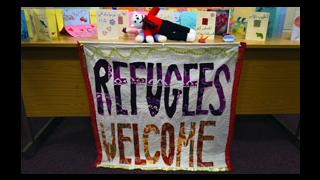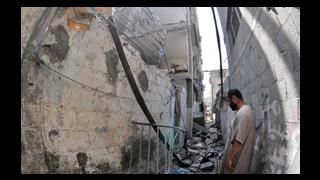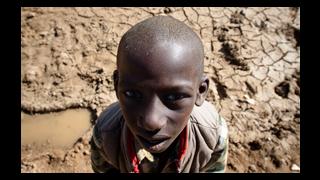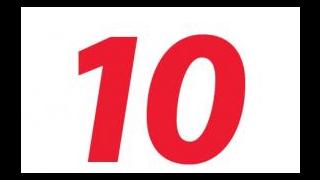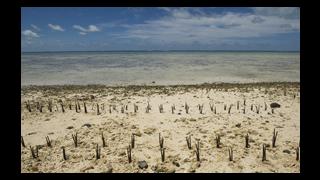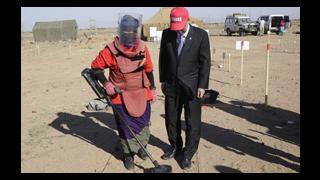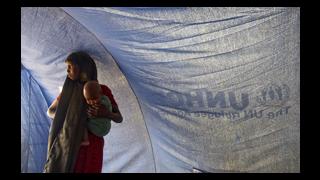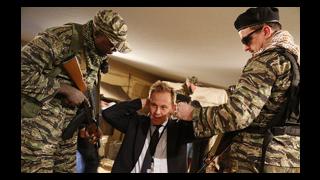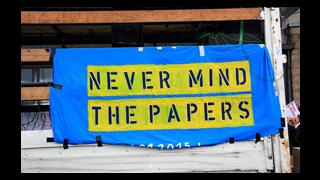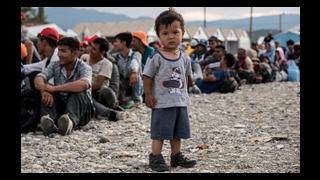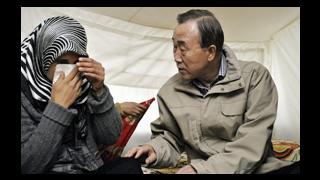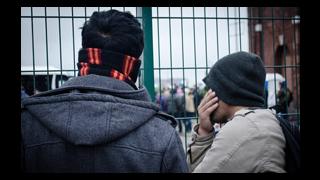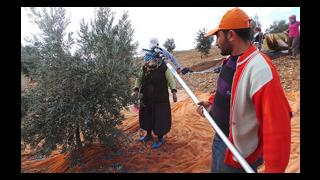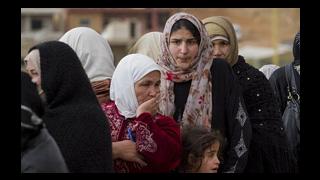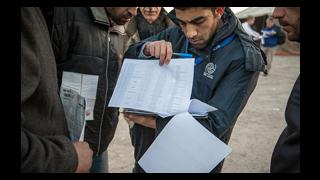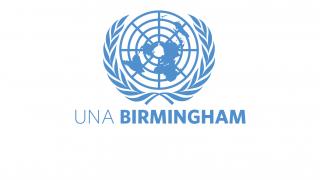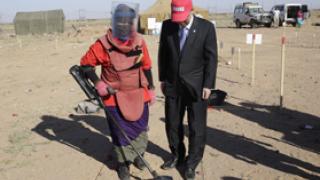
Ian Williams is a freelance journalist based at the United Nations who blogs at www.deadlinepundit.blogspot.com
When millions of refugees are trudging and wading their way to safety all over the globe, the plight of some 120,000 Sahrawis might not seem so pressing. But if ever there was “a quarrel in a far-away country between people of whom we know nothing,” it is probably, for many of us, Western Sahara’s struggle for self-determination and the Sahrawis’ quest to return to their land.
For 40 years, these refugees have eked out a precarious existence in the desert on the western edge of Algeria after being driven out by Moroccan occupiers. And just as Chamberlain’s dismissive words came to haunt his reputation, the Western Sahara imbroglio continues to have consequences beyond the bitter fight between Morocco and the Popular Front for the Liberation of Saguia el-Hamra and Río de Oro (Polisario).
At one time, the Sahrawis had the dubious benefit of Cold War patronage, but since the fall of the Berlin Wall there has been an almost consciously contrived international amnesia about them. That changed in March when UN Secretary-General Ban Ki-moon visited the Sahrawi camps in Tindouf and, clearly upset by what he saw, reiterated the long-standing UN call for a referendum on self-determination, and referred to the Moroccan presence across much of Western Sahara as an “occupation”.
Ban’s comments were grounded in UN resolutions and decisions going back four decades. In 1975, the International Court of Justice issued an advisory opinion stating that the Sahrawis are entitled to exercise their right to self determination and dismissing Moroccan claims to the land. The General Assembly has called for the “occupation of Western Sahara” to end, and the Security Council has called for Morocco to withdraw. In 1991, the Council set up the UN Mission for the Referendum in Western Sahara (MINURSO) to implement settlement proposals that Morocco had accepted in 1988.
Initially, Morocco paid lip service to the referendum while trying to pack the electoral roll with settlers. When it became clear that eligible voters wanted Morocco out, the kingdom insisted that the referendum exclude any question of independence. With support from France, Morocco has also managed to ensure that MINURSO remains the only UN peacekeeping operation without a human rights monitoring component.
When Ban made his statements, Morocco went into paroxysms of denunciation, claiming that the UN and the international community accepted its annexation. In a breathtaking abuse of language, it accused the UN Secretary-General of “semantic slippage” for using the term “occupation” and noted with “utter dismay the verbal slippages, faits accomplis and unjustified complacency,” of the Secretary-General. It ordered UN staff out of the territory it controlled.
With the future of MINURSO at stake, Ban sought support from the Security Council to protect the mission it had mandated 25 years ago and which it has renewed annually ever since. Surely the Council would not want to risk a precedent whereby states can, without censure, toy with peacekeeping missions simply because they don’t like what a Secretary-General says?
But support was not forthcoming. France, Egypt and Japan opposed action and, after days of backroom wrangling, the most the Council could deliver was an anodyne appeal for MINURSO to continue.
Persuaded by his staff that the UN generally uses the term “non-self-governing territory” rather than “occupied” for Western Sahara, Ban sought to explain to Morocco that his words had resulted from his emotional reaction to the refugees’ plight. But to his credit, despite searing personal attacks, he has not backed down from the UN’s clear and long-standing decisions.
Ban’s brave stance is particularly important as Morocco and its friends have thoroughly compromised the UN system. Successive UN officials have been bribed, suborned and browbeaten not to challenge the Moroccan version of affairs with anything as upsetting as the truth. Even the MINURSO website begins its list of relevant UN resolutions in 1991, when it was set up, not in 1975, when the Security Council asked Morocco to withdraw from Western Sahara.
The most convincing evidence for the Sahrawi case is the Moroccan refusal to allow a referendum. Rabat knows it would lose, and its refusal to allow a human rights component in MINURSO is obliquely eloquent testimony to how it intends to maintain control.
The UK has been reluctantly supportive of what Robin Cook would have called the “ethical dimension” of foreign policy over Western Sahara. But a public statement of support for the Secretary-General is overdue, as are reprimands to those countries whose deeds threaten to undermine the UN Charter and decisions of the Security Council, General Assembly and International Court of Justice. After 40 years of suffering, support for the Sahrawis is even more overdue.
Photo: Ban Ki-moon is given a demonstration by a trainee member of the Sahrawi demining team near the Bir Lahlou site of MINURSO. Copyright UN Photo/Evan Schneider




